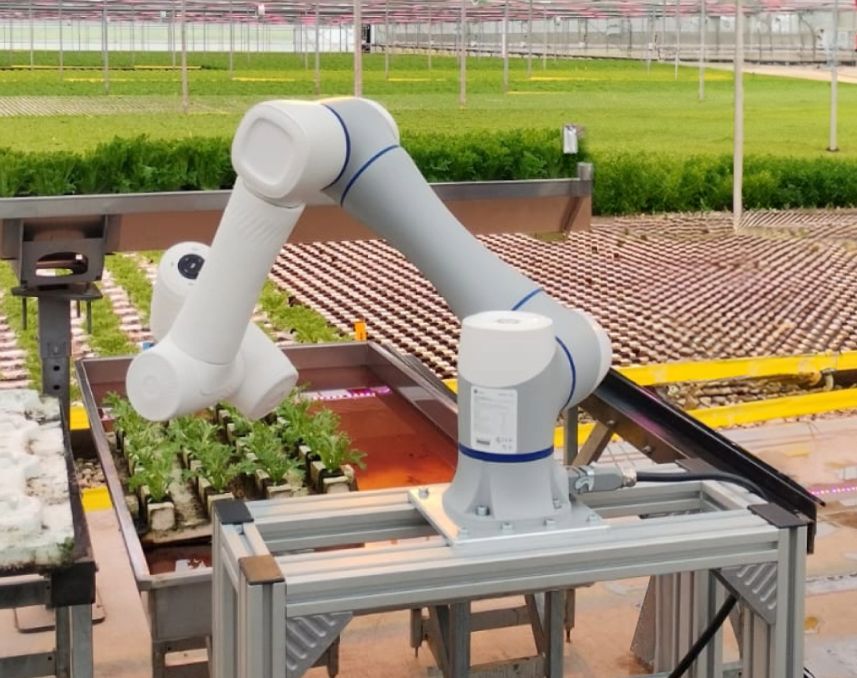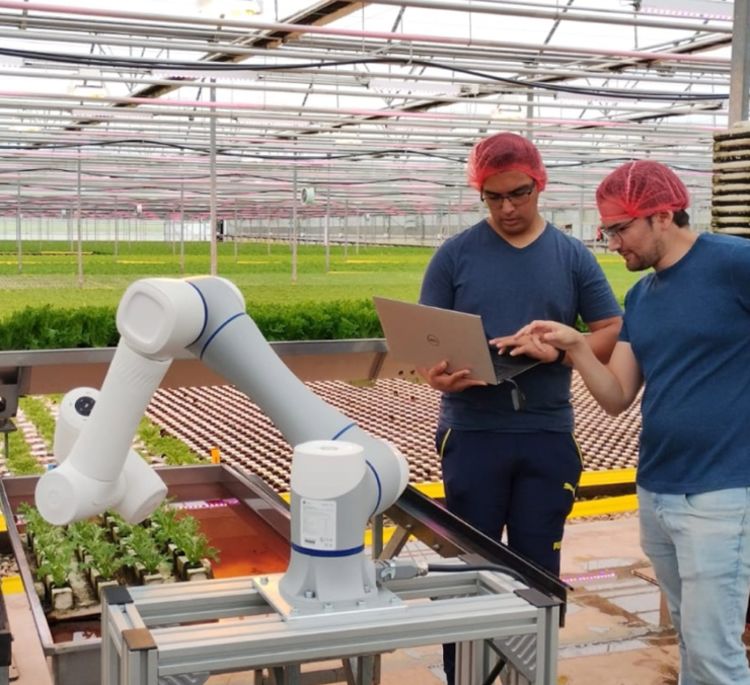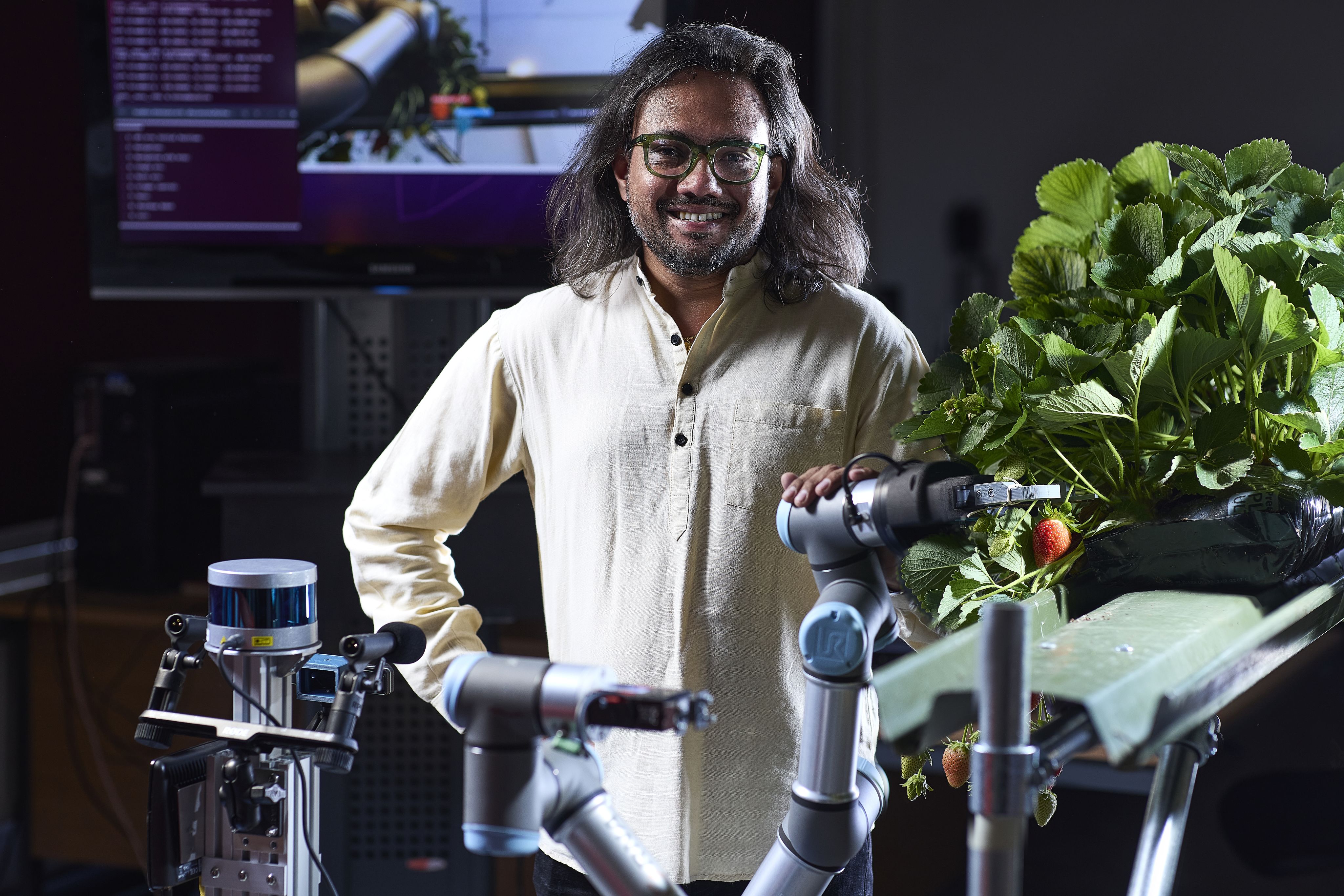Shaping the future of farming
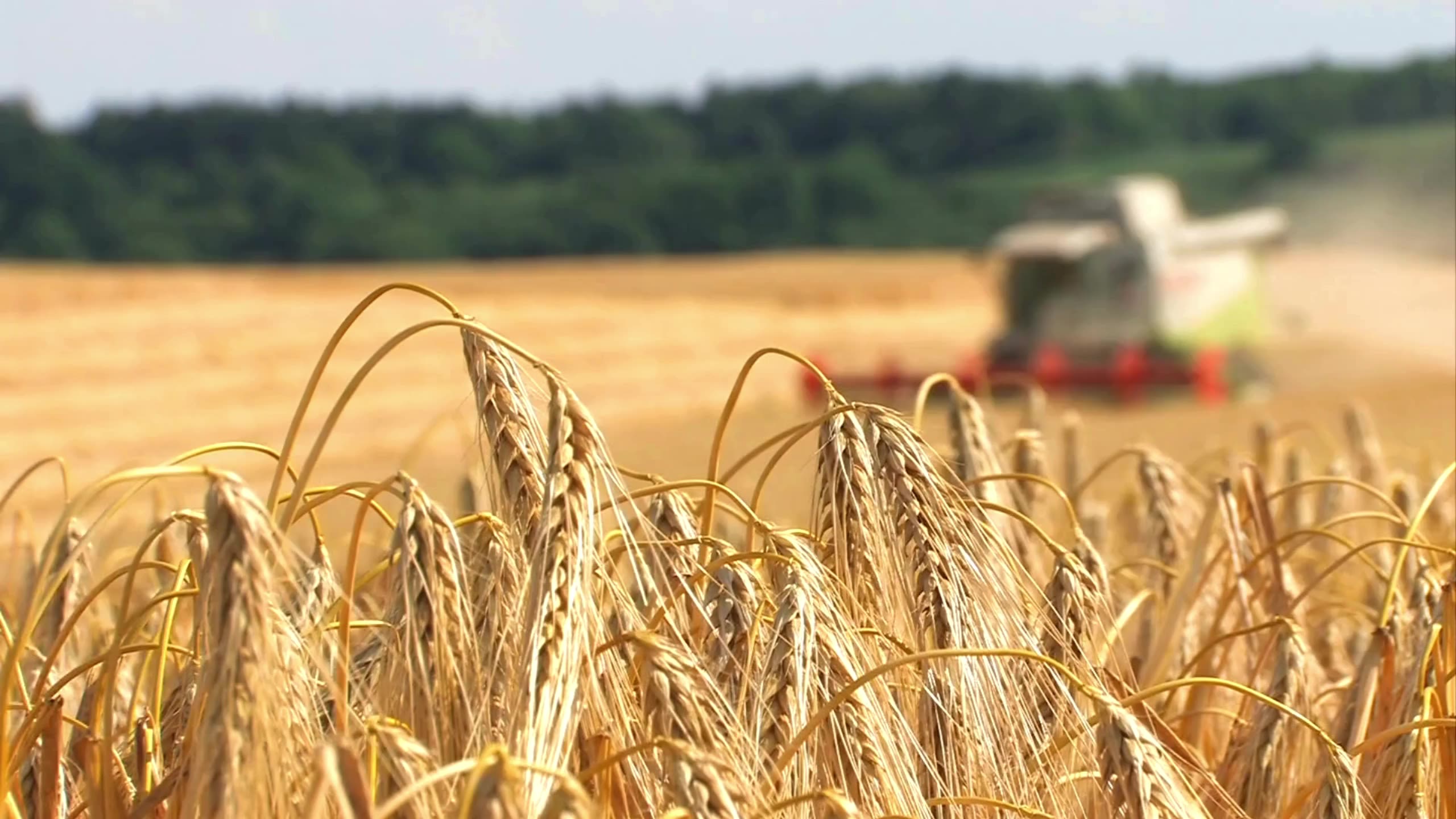
Climate change, soaring costs and a loss of labourers are just some of the many challenges the agricultural sector is facing.
In East Anglia, the University of Essex is responding to these problems by applying ground-breaking research on farms across the region to improve crop growth and harvesting.
By putting data analytics, artificial intelligence and robotics research into action, our experts are transforming farming and protecting its long-term future.
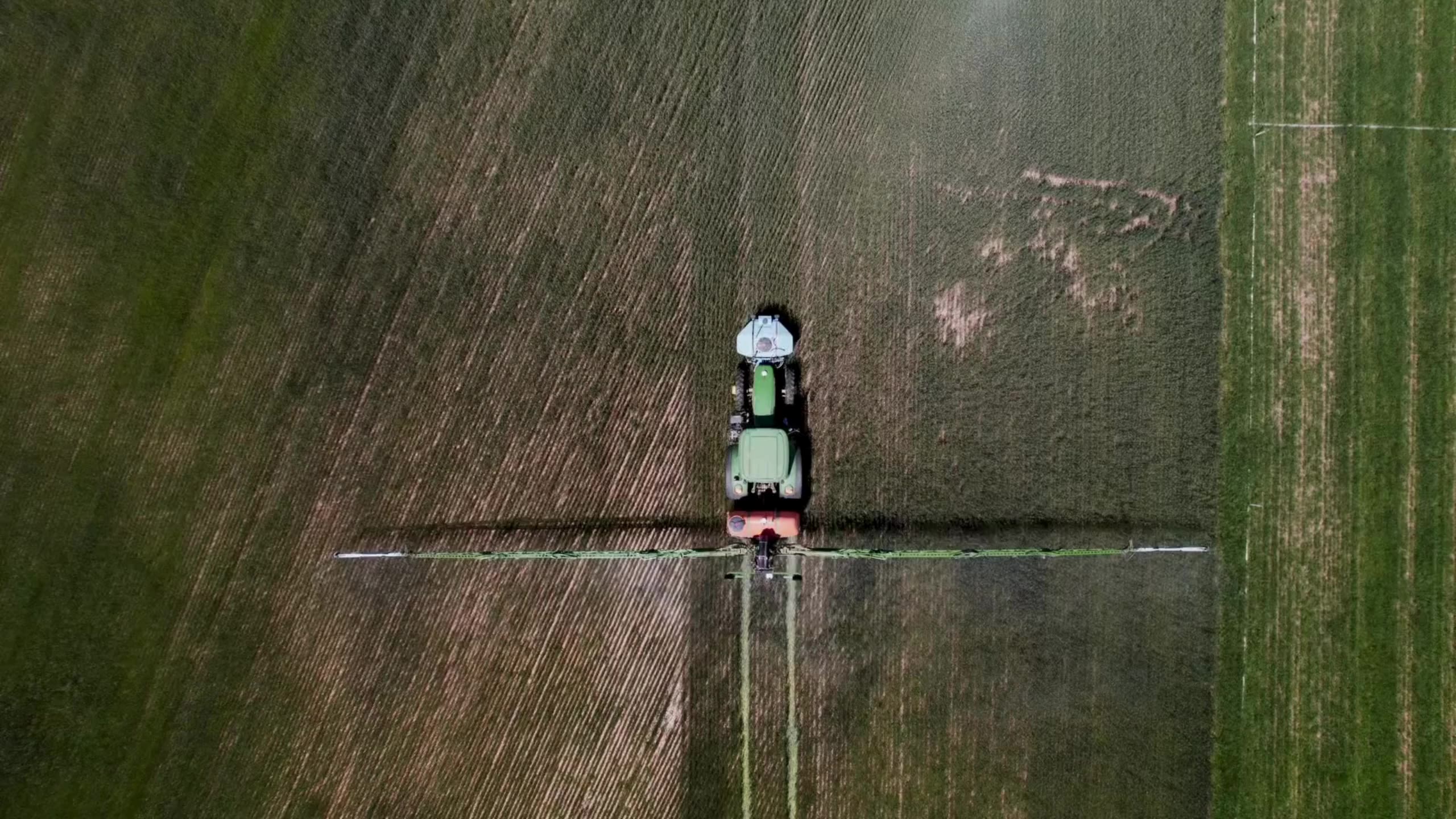
Maximising lettuce growth
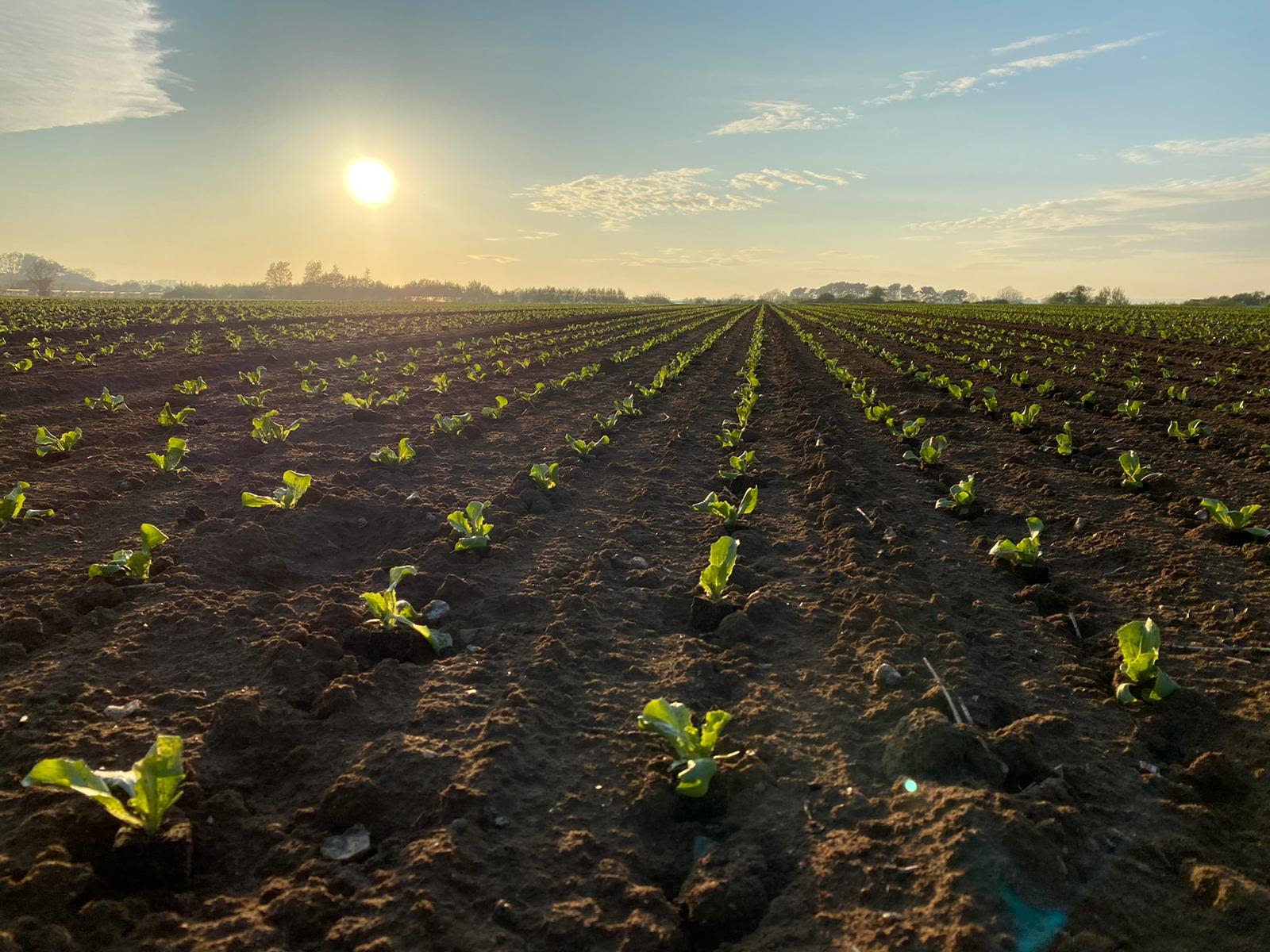
Knowing when to intervene with crop growth has long been a headache for farmers.
But through a Knowledge Transfer Partnership (KTP), G's Growers is tapping into the expertise of Essex's Institute for Analytics and Data Science to solve this riddle.
G's, whose crop range includes babyleaf salad, mushrooms, beetroot and radishes, produces millions of iceberg lettuces every year, yet only 75 per cent of the seeds sown grow into lettuces good enough to sell.
Essex's Dr Ana Matran-Fernandez, Dr Spyros Samothrakis, and Dr David Clark are aiming to enhance this output by developing an intelligent simulator system to apply new techniques in data science to the challenge of predicting and managing variance in G’s key iceberg lettuce crop.
The simulator will be used to model growing conditions and interventions, such as the application of pesticides, and to predict which actions will produce the highest yield of uniform, saleable crops.
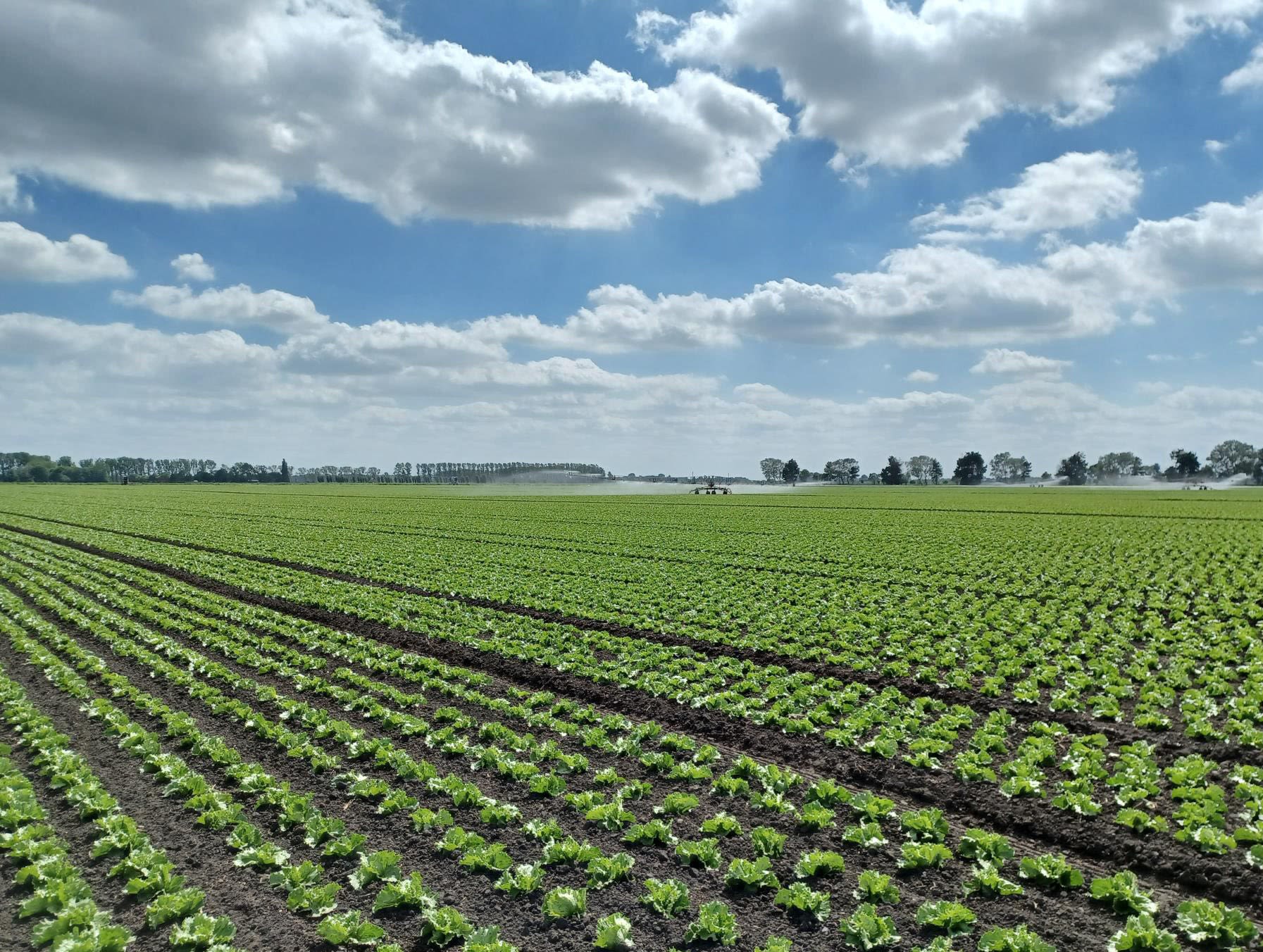
A new type of onion farm
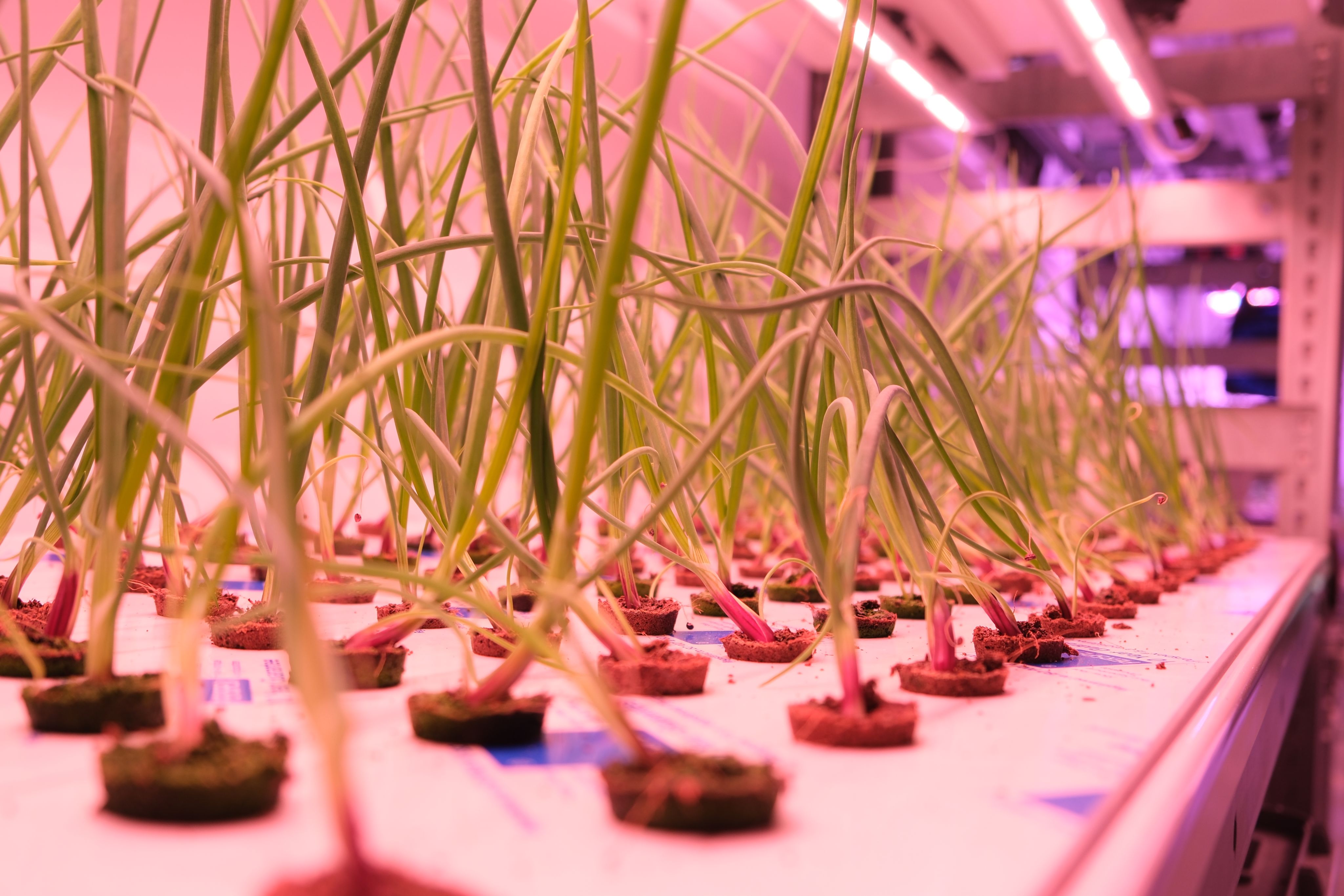
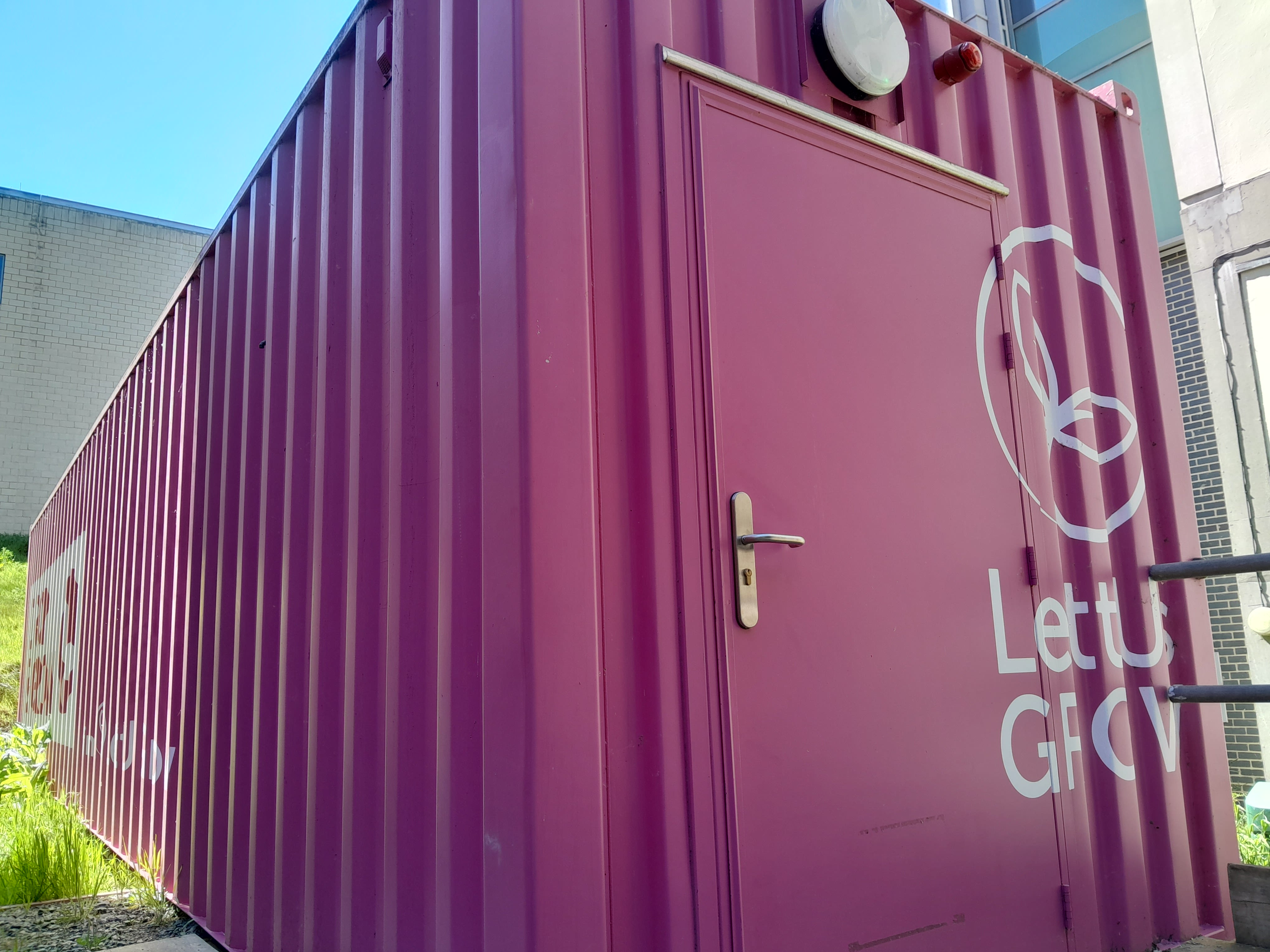
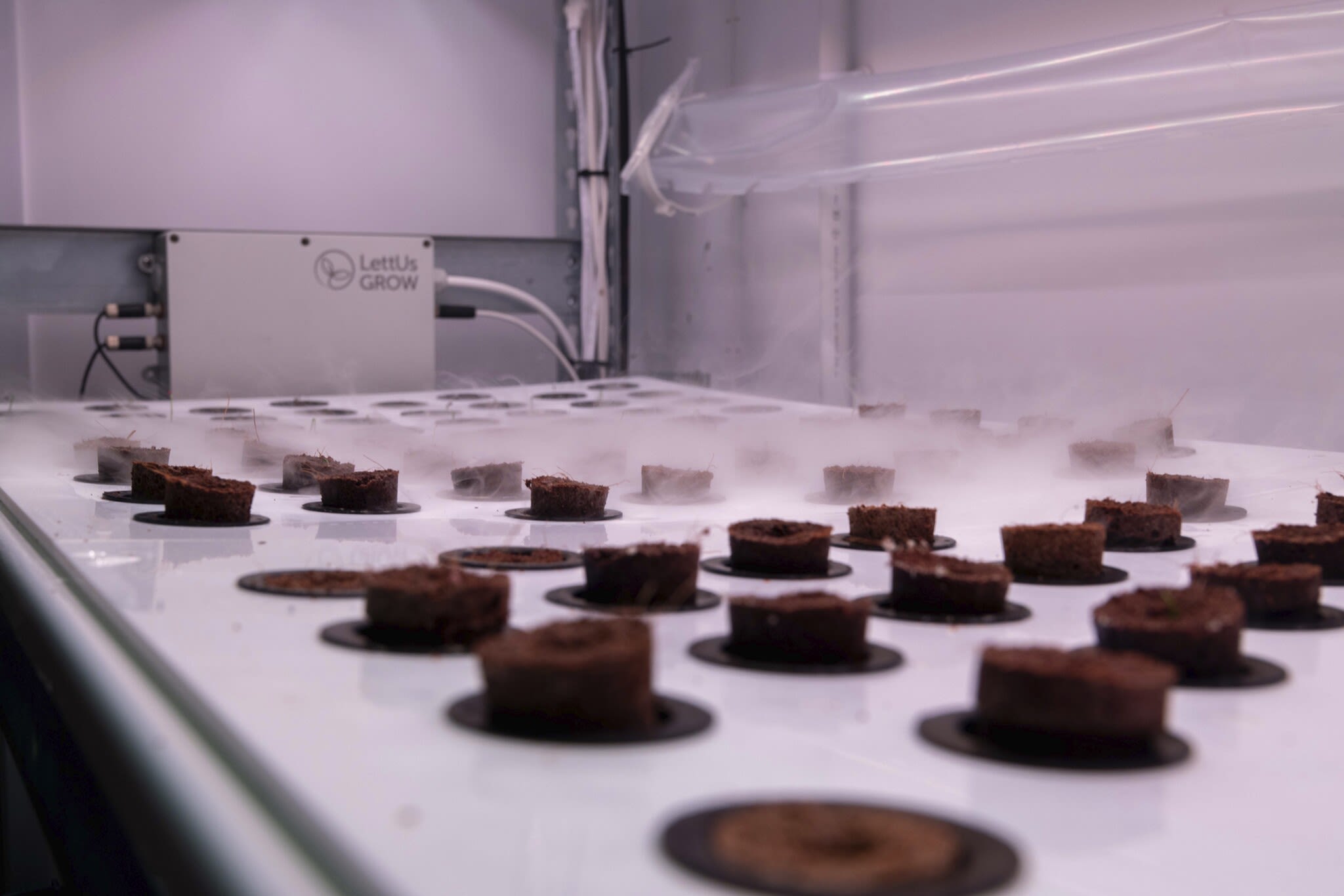
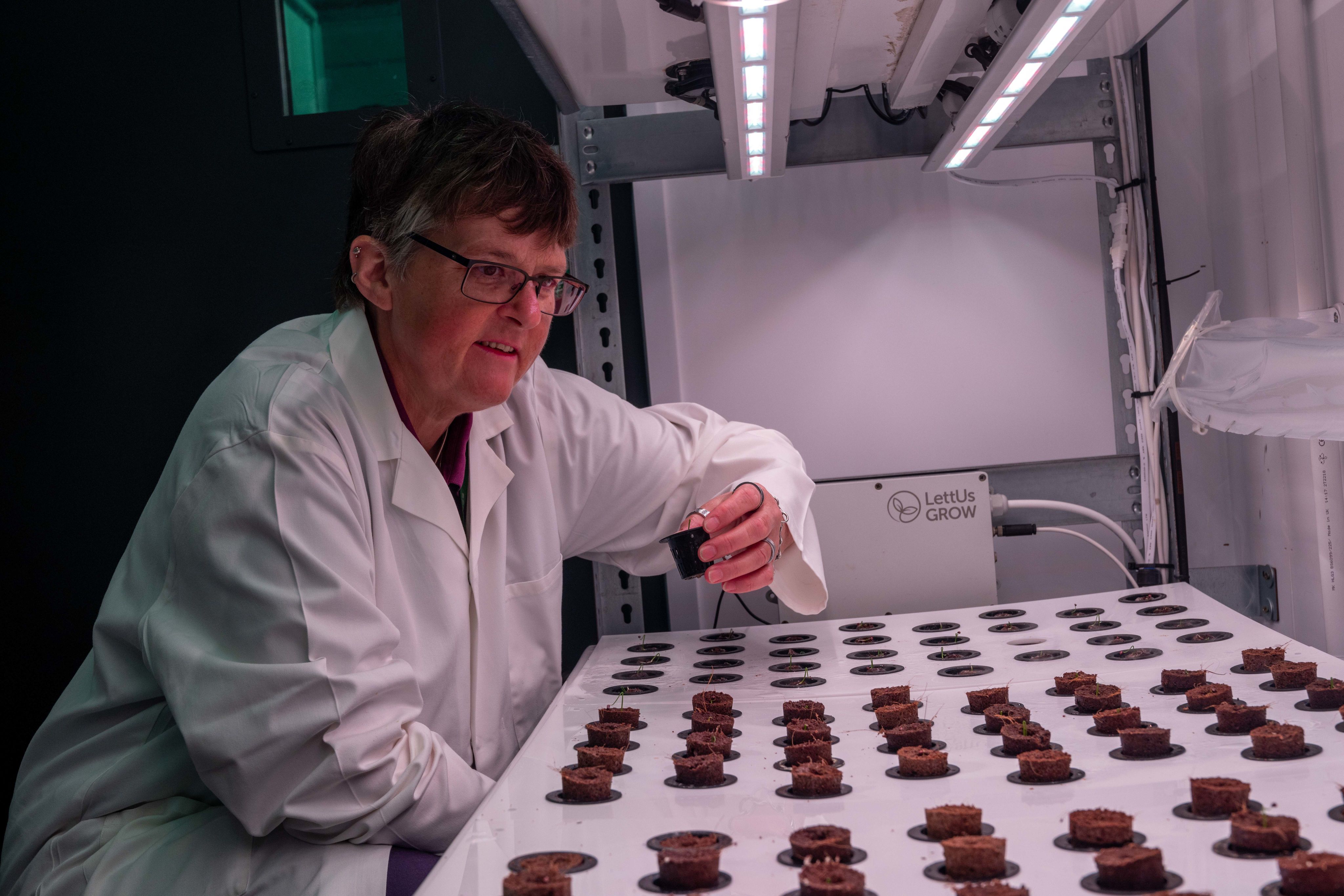
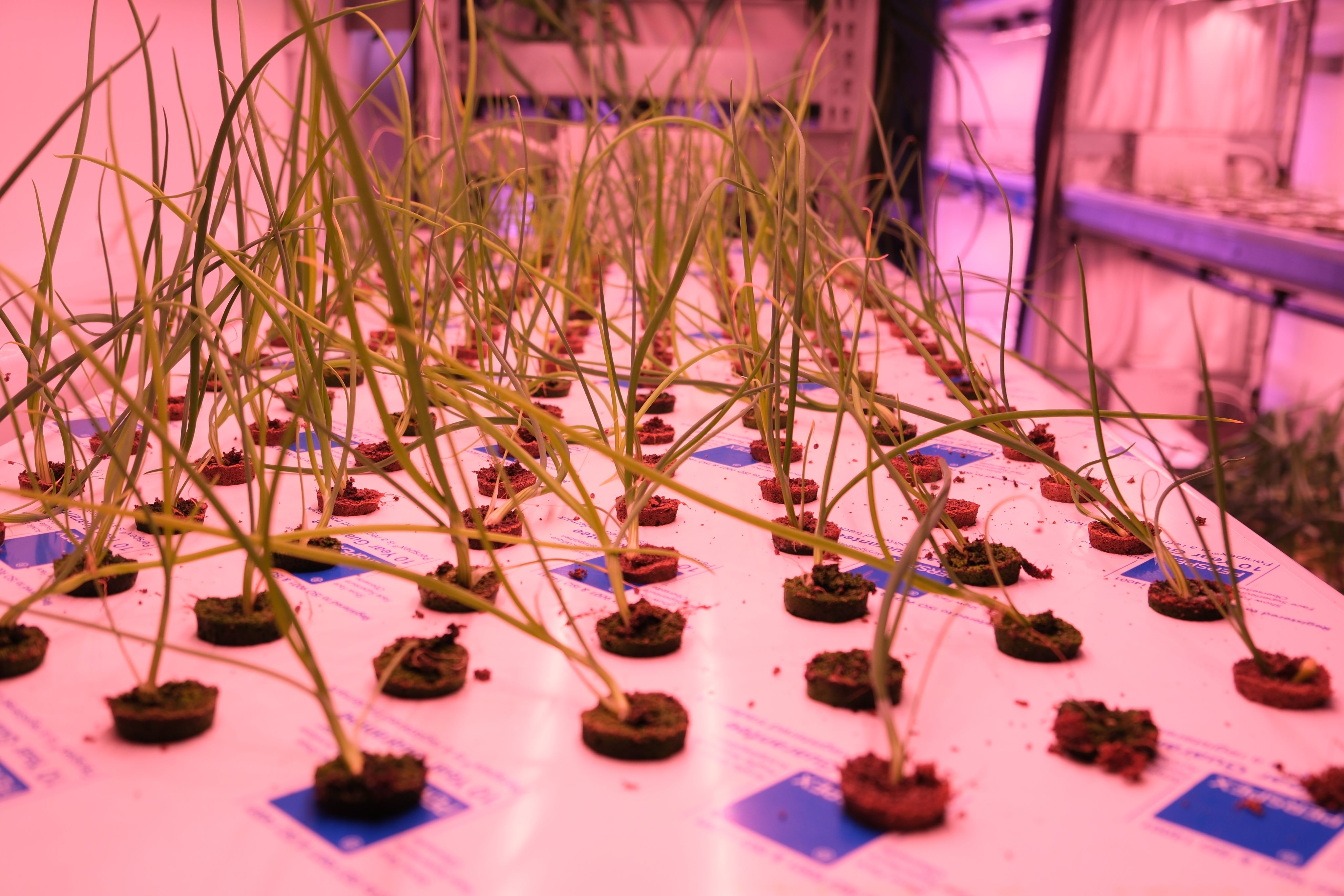
A bright pink shipping container based in the depths of our Colchester Campus might be the last place a farmer may decide to grow their onions.
But a partnership between Essex, renowned onion-grower Stourgarden, and LettUs grow is doing just that.
Using aeroponic growing methods, onions are being grown in an air and mist environment inside the shipping container.
If initial trials are successful, this new type of onion farming will reduce the carbon footprint of the production process, speed up growth, as well as prevent disease which can leave soil unusable for future crops.
Professor Tracy Lawson, who is leading the project, said: "This project is extremely exciting as it expands on our ongoing research focused on manipulating light within controlled environments and vertical farms.
“We’re now channelling this expertise towards a crop with diverse growth stages, ranging from seed germination to bulb formation."
Robots to the rescue
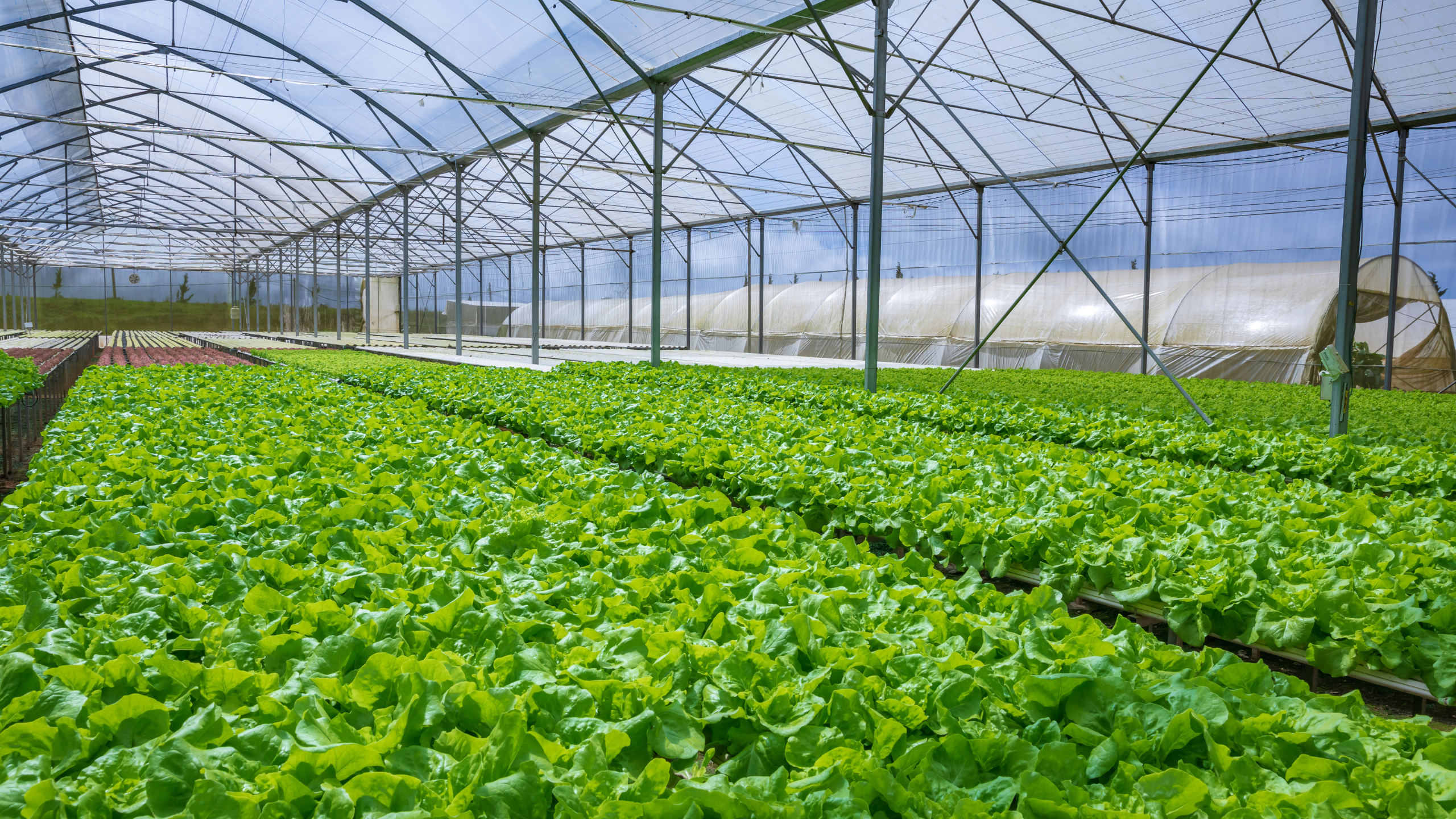
Labour shortages are having a major impact at both ends of the crop farming process.
Researchers from Essex’s School of Computer Science and Electronic Engineering are working with JEPCO to explore if robots can be used as an alternative to humans when it comes to growing and harvesting lettuces at scale.
Their project titled SCARLETT - SCAlable, structured and Resource efficient indoor robotic harvesting of LETTuce – has carefully reviewed how every element of the farming production process can be optimised and adapted for the integration of robotics.
The project, managed by Robotics Research Assistant Roberto Mendívil Castro, can potentially increase production efficiency, enabling farms to grow with dwindling labour and facilitate 52-week production in the UK.
Jonathan Dove, General Manager at JEPCO, said: “This was an ambitious project that has the potential to transform how produce is moved and handled in our greenhouse operations by bringing in robotics where repetitive tasks and tasks where staff are underutilised makes absolute sense.
"With the issue around labour shortage and the desire to be able to use this hydroponic technique efficiently and look to the future with modern techniques, it has been great to see how far we can go.”
The partnership has utilised Essex’s expertise in machine learning based visual detection, classification and point cloud analysis of crops; dextrous robotic manipulation using a range of tools including soft hand, magnetic gripper and cutting-knives to automate transplanting, placing, cutting and packaging tasks; and mobile robotics.
Healthy strawberries
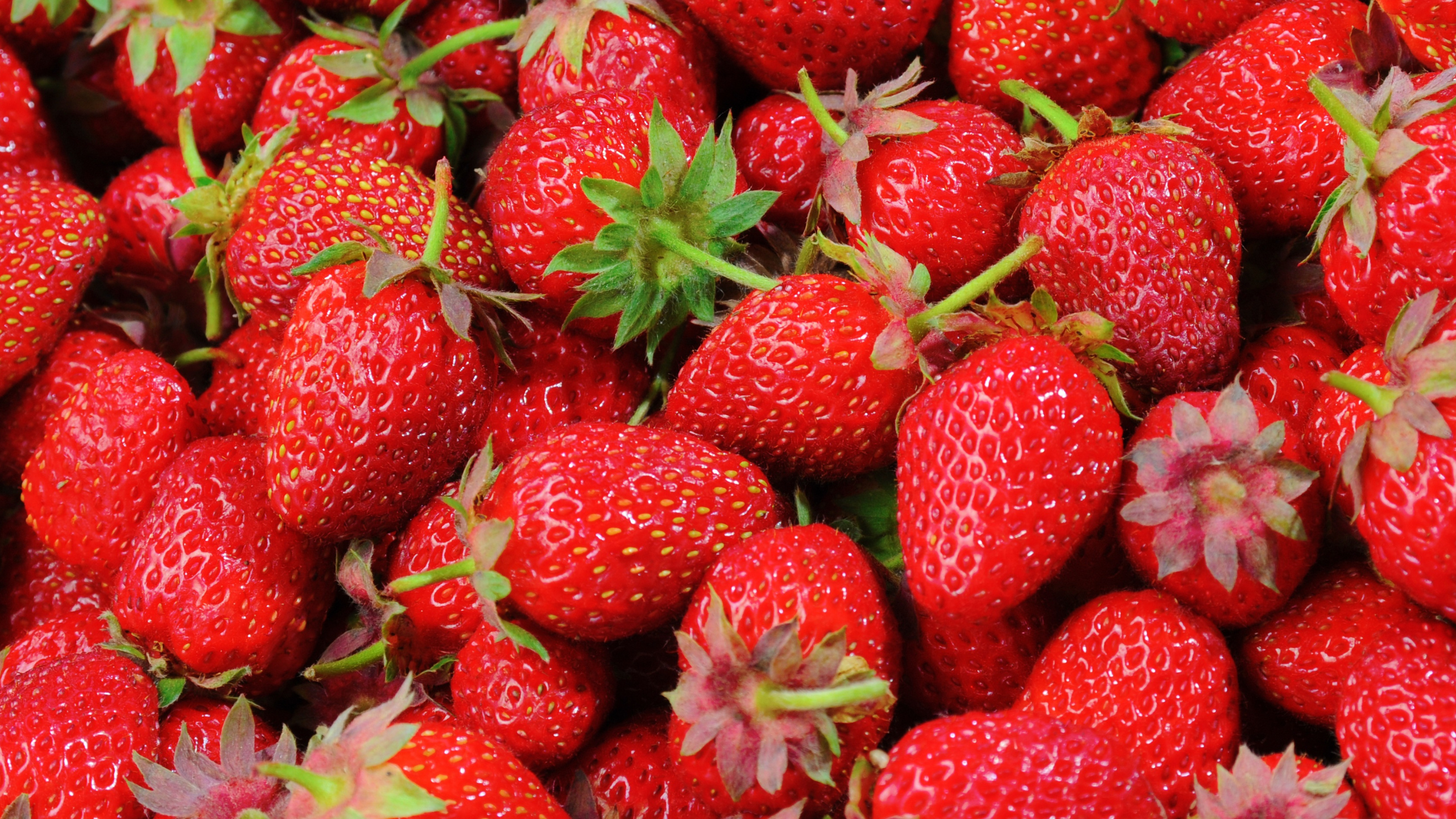
One of the world's top jam-makers has teamed up with Essex to boost the yield of its strawberries and experiment with fungicide-free production.
The KTP with Wilkin & Sons is looking to crackdown on common farm diseases such as mildew and botrytis through the use of AI and drones.
The team, which is made up of academics from our School of Life Science, and School of Computer Science and Electronic Engineering, is using data taken from drone surveys to develop a system capable of detecting and predicting disease outbreaks.
The prediction model is created using techniques such as spectral analysis, image processing and machine learning.
With a disease monitoring and prediction system, Wilkin & Sons hopes to be able to reduce and eventually eliminate the use of preventative spraying in their crops.
This will not only offer significant commercial returns by improving yield but will also have a positive impact on the environment.
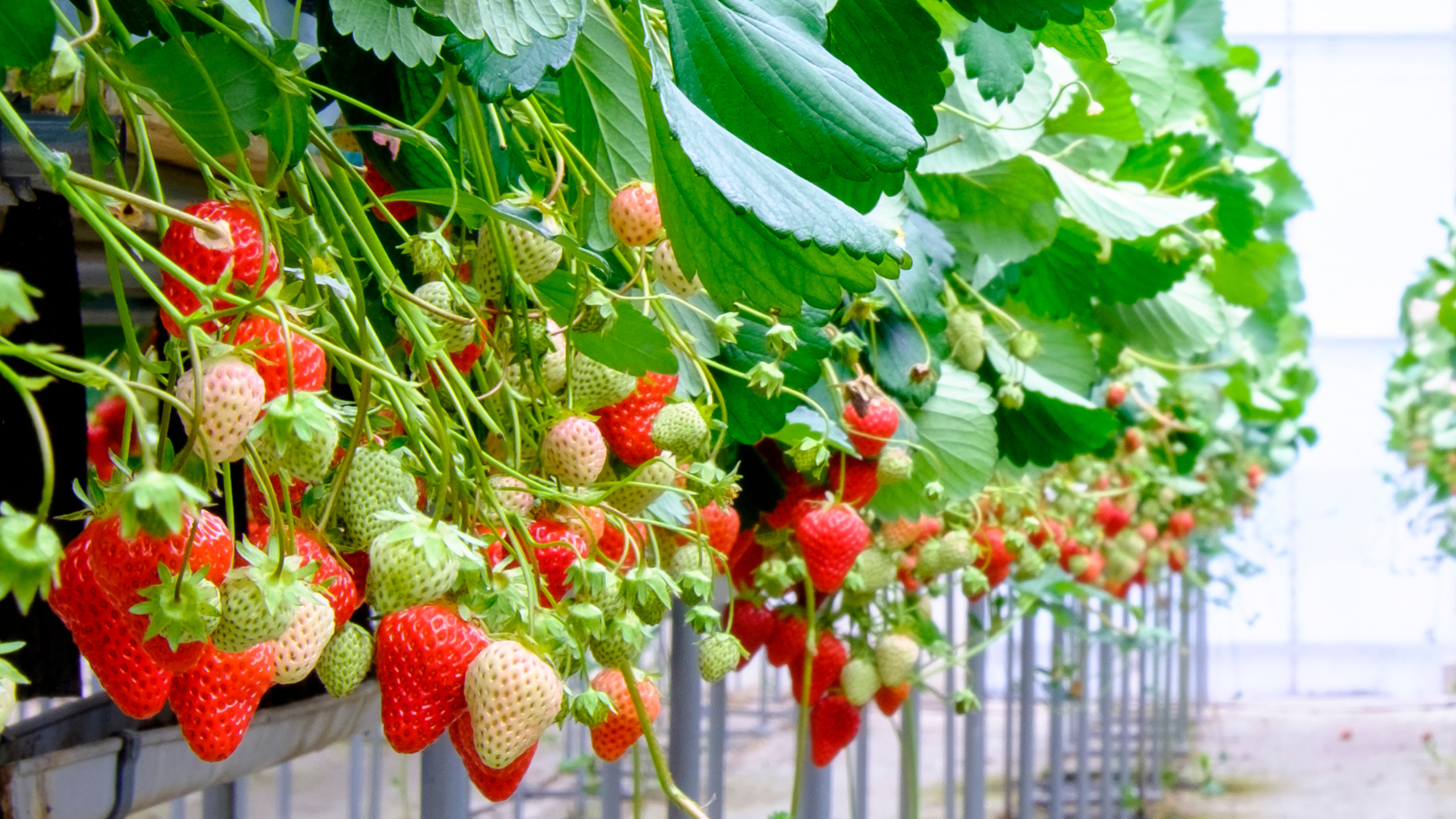
Find out more
Collaborate with Essex
There are plenty of opportunities to work with Essex expertise on an innovative project that could propel a business. From Knowledge Transfer Partnerships, to consultancy and contract research, Essex can help you tackle big business challenges.
Our industry partners
Read first hand experiences of how Essex’s research in data science, computer vision, virtual reality, embedded systems, artificial intelligence, plant science, behavioural psychology, big data and robotics can drive innovation and growth for our partners.
Sixty Stories
We’re celebrating 60 years of making change happen. 60 years of boldness and bravery from our students past and present. 60 years of creating change.

